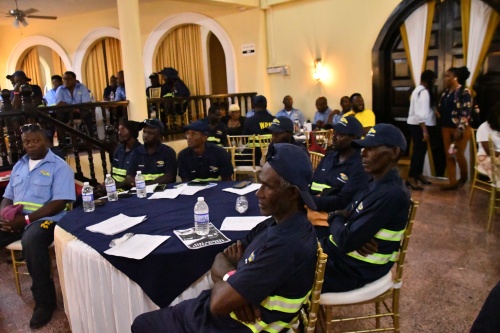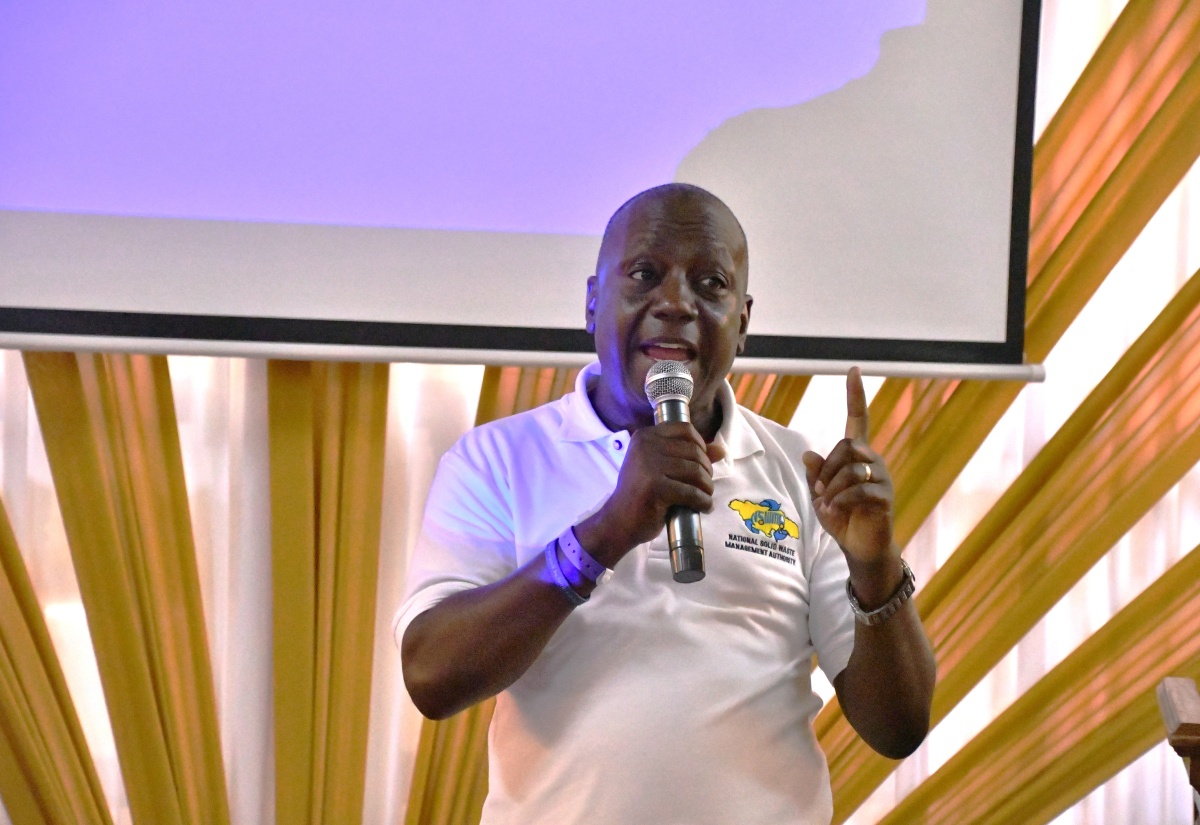NSWMA Provides Training to Empower Front-Line Workers
By: , June 23, 2025The Full Story
The National Solid Waste Management Authority (NSWMA) remains steadfast in its commitment to the continuous training and development of its front-line workers, says Executive Director, Audley Gordon.
This is part of the agency’s drive to enhance public service and professionalism within the sector.
Speaking to JIS News after a training session for staff of WPM Waste Management Limited, held at the Sea Garden Resort in St. James on June 19, Mr. Gordon explained that the programme, dubbed ‘Back to Basics’, was designed to reinforce key principles among sanitation workers, who serve as the face of the organisation.
“The NSWMA has long recognised, like other institutions, the need for constant training and refreshing of the workforce,” Mr. Gordon said.
“We especially dubbed the training, ‘Back to Basics’, because we take up garbage, and there are some basic things that, over time, you lapsed into, and we want at all times to present our best face. And the face of the NSWMA is our sanitation officers,” he added.
He stressed the value that residents place on their regular collectors, noting that sanitation workers are often the most visible and recognisable part of the organisation in communities.
“When this person in a particular community [calls] NSWMA, they don’t ask for the accountant, they don’t ask for the executive director, they don’t ask for the community relations officer or any of the fancy offices that we have there. Those titles mean zero to them. What they want to know is why you take the man that used to work in our area and move them to another area,” Mr. Gordon said.
“[They say] ‘we and them [workers] live so good. What happened to so-and-so? What happened to the driver named so-and-so?’ So, there is a relationship that has been established out there. Why? Because they are always around,” he added.

The Executive Director said the training sessions cover not only work-related practices but also seek to empower workers in their personal lives.
“We talk about deportment. We talk about hygiene. We talk about just their general mannerism. We try to educate them about managing their money so that they can continue to feel good about themselves and can play their part as leaders in their families,” he noted.
Mr. Gordon explained that the programme is tailored to meet the realities of the demographic from which many sanitation workers are drawn.
He told JIS News that the sessions also incorporate support from other government entities, which give presentations to inform the staff about their various products and services.
Addressing behavioural concerns, Mr. Gordon said the Authority is responsive to community complaints and uses them as teaching moments.
“When people say that they see a truck idling over a yard for too long, a truck parked at the gate for half an hour and the staff is not working, the [sanitation officers] are just standing outside and the driver gone inside – I mean, we’re not stupid. We know [what’s happening]; we can’t do that,” he emphasised.
Mr. Gordon said that in order to increase accountability and improve efficiency, the Authority is leveraging technology.
“We put nearly 200 trucks out there each day to do garbage collection. We have to have a system to watch the trucks and we don’t hide these things. We are doing this to protect you and us and to make sure that we have better product delivery out there,” he assured.
Mr. Gordon said the training is also an important opportunity for two-way communication between staff and management.
“It is an opportunity for interaction – for us to hear from them. They hear from us and so by doing that, they feel that they are part of something good, which they are. It is not about just coming to lecture. It’s about coming to have a dialogue, and a Senior Director is always in the room,” he said.
Although the sessions slightly impact operations, Mr. Gordon said the long-term benefits are well worth it.
“We can’t close down the operation. Somebody might see this and say ‘we take them out of here’. No. That’s why we have two days. It affects the operation in some way, but we believe that the good that comes from it – the pluses – far outweigh the minuses,” he outlined.
Mr. Gordon said that the agency is seeing improved public perception as a result of these efforts.
“Even when there are delays… people call to say, ‘oh, I didn’t see them’, they say, ‘but we understand’. So, you can see we are slowly but surely getting the public on our side,” he added.
The NSWMA is also developing customised management training for its leadership staff in partnership with the Management Institute for National Development (MIND) and continues to support academic advancement through institutions such as the Caribbean Maritime University (CMU).
“Garbage collection is different from everything else, so we want that special management training for all our managers. When you talk about training, you could almost say it’s synonymous with the NSWMA,” Mr. Gordon said.
The training will continue in the coming weeks across all four NSWMA regional groups – NEPM, SPM, NPM and WPM.
“We do parks, gardens, every aspect of it. We don’t leave out any department. Everybody benefits from training. We believe heavily in training because we have to constantly improve it. Somebody told me that we can’t stop learning because life never stops teaching,” Mr. Gordon told JIS News.


